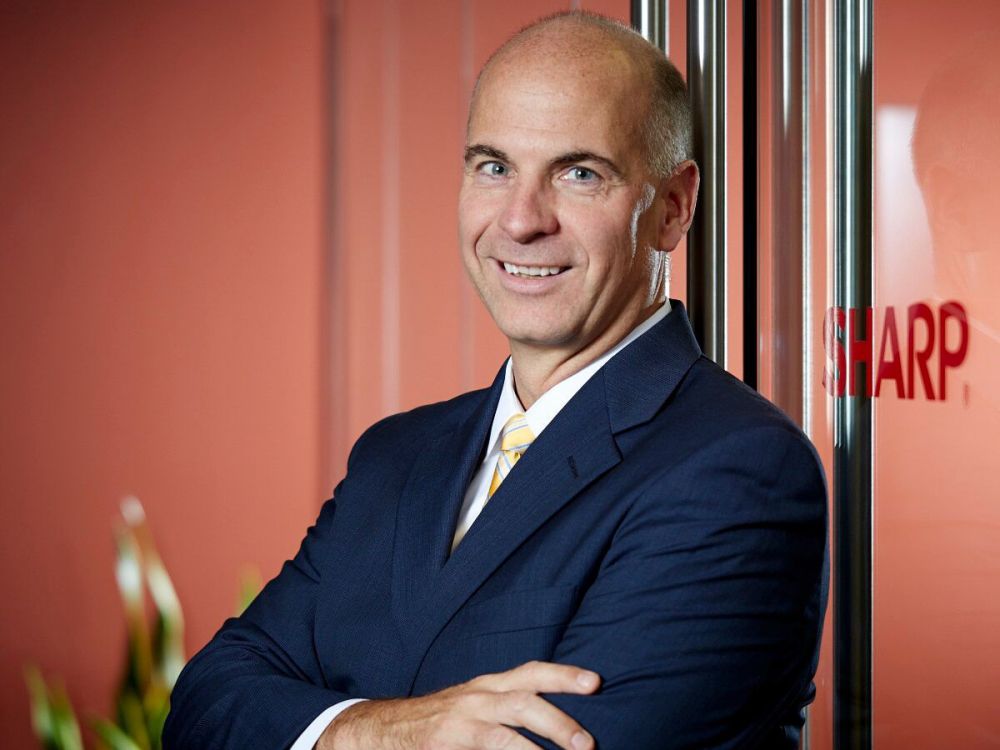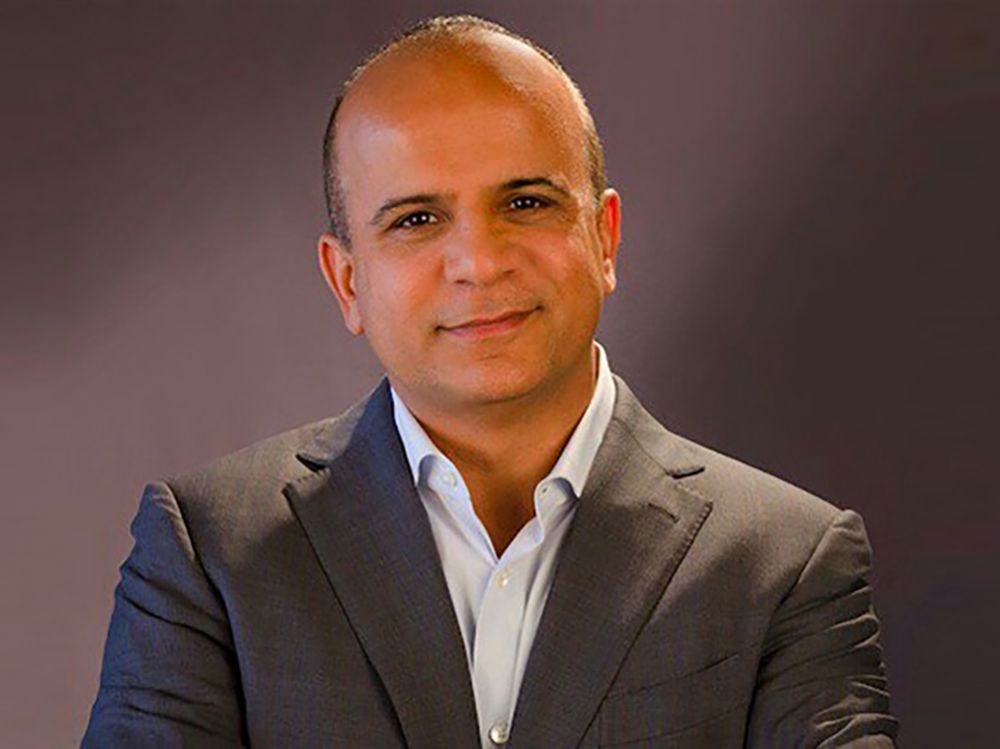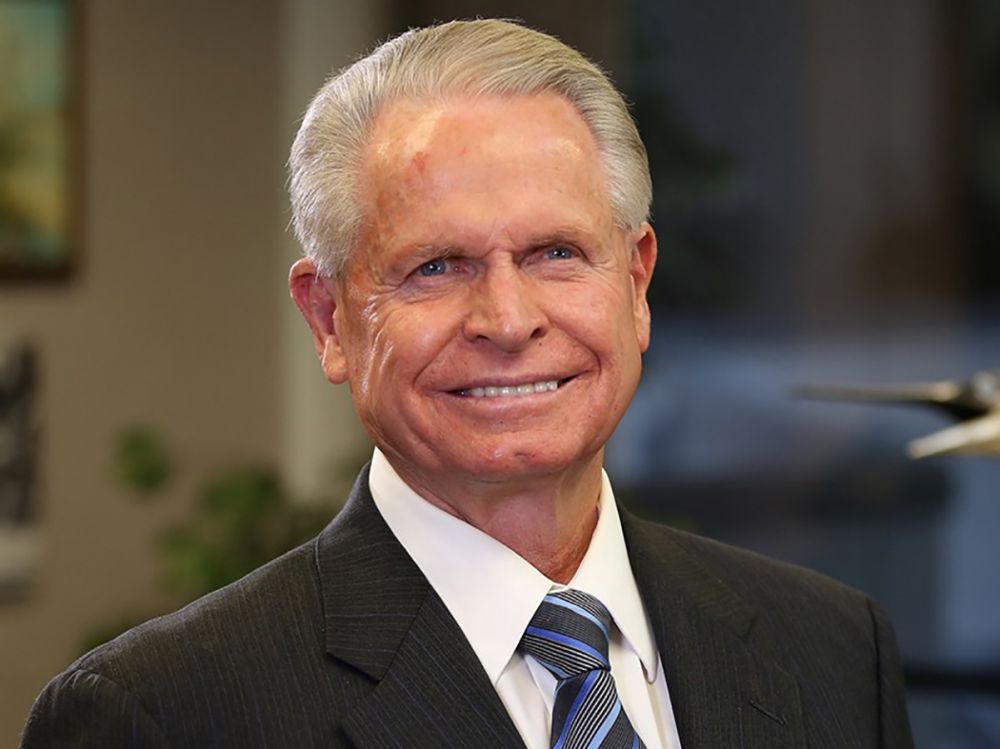10 Top Executives at 10 Household-Name Companies Share the Things They Wish They Knew From the Start
“If you get knocked down, keep pushing forward,” says this one exec. “It’s all about the process.”
November 15, 2019 15+ min read
This story originally appeared on Authority Magazine
It has been said that “there is no one as wise as a person with experience.” Often, even extremely well educated leaders learn much more from the “school of hard knocks” than from their years spent in business school.
Authority Magazine has an ongoing interview series called “5 Things I Wish Someone Told Me Before I Became a CEO.” We spoke to hundreds of CEOs and top executives and asked them to share the five lessons they learned from their experience or the five things they wish they were told when they first started. Here are 10 highlights from the interviews.
These interviews have been edited for length and clarity.
Rashida La Lande (SVP at The Kraft Heinz Company)

Image credit: via Authority Magazine
- Treat everything as a learning opportunity. Take the time to strategize and come up with a plan for every decision that you make and then, after the results are in, take the time to revisit your plan and assumptions. What went as expected and what didn’t? Learn from the data and use what you learned on your next project.
- Trust yourself. Most of us have a little voice inside that pops up at the worst possible moments and causes us to question ourselves. My team came to me to for guidance on a minor crisis and at first, when presented with the issue, I heard that voice, and it instigated an immediate panic. “How are you going to deal with this? This could have serious repercussions and you have never dealt with this issue before.” I steadied myself and told that voice to hush. I knew the law. I had seen companies deal with the issue many times. I had seen where the strategy worked, when it didn’t, then even took part on the postmortem team that analyzed the response. I have a strong team. Together, we worked to solve the issue, and I am proud of the way we handled it.
- There are no short cuts to success. It’s all about the process. Never give up. You will fail. You will make mistakes. If you get knocked down, get up, and keep pushing forward.
- Enjoy what you are doing. Every single day, I learn something new or face a new challenge. I love my work as the General Counsel of Kraft Heinz.
- Remember that everyone’s voices count. Great ideas, valuable contributions and inspiration can come from anywhere. Stay open and open-minded to all possibilities.
Mike Marusic (CEO of Sharp Imaging and Information Company of America)

Image credit: via Authority Magazine
- You get a ton of emails. It was not as though I did not get a lot of email and solicitations before, but I have been surprised by how much comes through now. I want to answer each one or at least read what was sent — but the sheer volume is daunting. I try to keep up, but it is not uncommon to have a day with a few hundred emails. Most are spam or solicitations, but you have to quickly check to make sure. I have missed some early morning conference calls or requests from our team in Japan by not paying enough attention. I feel really bad not responding to people, so I take this seriously.
- When you become a CEO, you move from an advisor role to the final decider role. I find it ironic that one of the attributes that help someone get into this type of role may not be the best course of action once you are in the position. People often move into these roles by being decisive and having a good grasp on the information in their domain. It becomes harder when you make the final call, and you may not have all the information that you would have had in your previous role. You suddenly realize, you just were not part of those other decisions when you had limited info to offer! So, getting an understanding of how to solicit others’ views and organizing them into your final decision is a skill that I am trying to quickly gain.
- People in the organization and the industry will know a lot about you. It seems obvious, but when it is happening to you it is a little harder to grasp. As I said, I am a bit on the quiet side so having someone want to talk to me took some time to get used to. I am adjusting and trying to be more proactive now.
David Kong (CEO of Best Western Hotels and Resorts)

Image credit: via Authority Magazine
- It’s lonely at the top. Often I have to do things that may not be popular, but I believe are necessary. In addition, I have to maintain a distance from my team. I have to separate business from personal relationships.
- Innovation can be difficult. Change is hard for people to embrace. As Jeff Bezos often says, “Invention requires a long-term willingness to be misunderstood.” By that I think he means that sometimes an idea could be ahead of its time. One has to be willing to pursue initiatives that others may not understand or necessarily support.
- Autocratic leaders are seldom successful. While an idea may be right, if the CEO doesn’t have the support of his or her team, the idea won’t be successful. Building support for a common vision is vitally important.
- The power of passion. I’ve heard many talk about the importance of an individual’s intellectual quotient (IQ), emotional quotient (EQ) and curiosity quotient (CQ) when evaluating how successful he or she will be. But I believe that how passionate a person is, is equally important in determining their success. If you aren’t passionate about your vision, why would anyone else be?
- Stay balanced. Work in this role can be all-consuming. But I’m fortunate to have five adorable grandkids that help keep me focused on what is most important. Finding time to spend with my family, workout and travel helps me to be a better CEO.
Tony Sarsam (CEO of Borden)

Image credit: via Authority Magazine
- Hiring a great staff is nearly 100 percent of the challenge. As CEO, you will often hear opinions about the company’s need to hire for technical skills. “We need a good operations leader… ” or “We need a great salesperson….” More often than not, you just need a good team. Of course, employees must be technically competent. But it’s more important to hire people who have the ability to embrace change, communicate a message effectively and who will own every aspect of the company’s performance instead of just what’s in their functional scope. When I came into my last company, I had replaced two-thirds of the executive team early on. The remaining group of the original team had remarkable technical capability. I was told by the broader organization that the company needed them. While I sensed they were not great at leading change, I kept them due to their compelling technical skills. Ultimately, their lack of ability to lead and be nimble enough to think about things differently was a genuine impediment. I learned the hard way that the time it took to part ways and replace these managers was wasted time.
- Cash is king. While people may have heard that phrase, they don’t understand it fully until they work at a midsize company where you must think about cash. There tends to be less focus on cash in larger companies. On my first day as CEO in one of my previous companies, I received phone calls from vendors telling me we were 40, 60 and sometimes 90 days overdue on payments. My first task should have been to examine the AP register. I never imagined cash flow would be a problem. I now know that managing cash is essential to understanding the current health of the business.
- Hire people who can model A-plus work. When I come into a struggling midsize company, I know I will encounter capability gaps among employees who have not had access to the kind of training you would find at a large organization. There is typically a lot of desire to be successful but a fair amount of raw capability. I used to underestimate just how difficult it is to model what you want in terms of standards, in the absence of people who know what A-plus work looks like. It’s critical to infuse into the organization people who model A-plus work. Most learning takes place when employees witness and work alongside a star player. When I joined Borden Dairy, I told employees that we would focus more on innovation, and this was met with great enthusiasm. Throughout the journey to innovation, employees expressed very positive feelings about what we were going to do and how we’d do it in the marketplace. I didn’t realize was that the team broadly didn’t even know what to do because they hadn’t experienced or seen a product launch before. They did not know how to rally to get extra shelf space at the supermarket or how to stage a new product. Big companies know how to do this well; small companies learn it through experience. I learned that we need people who can take others by the hand and lead them through the process.
- You are in charge. It takes awhile to realize that on many topics as a CEO, you aren’t going to have someone in the building, on the phone or on the board who can really help you and be there to bounce ideas off of. A CEO’s role can be lonely in this regard, so you have to find a way to get your own guidance and inspiration. In larger companies, you typically have a function lead with someone who has greater experience and authority; you also have more peers around you. In a previous role, there were compensation and benefits decisions I needed to make for the entire organization. I never wanted to assume those things had been done well before I joined the company because in many cases, they are not. It’s difficult to get unbiased opinions about employee compensation and benefits from within the organization. I informed the board of directors about the situation and sought their opinions. I quickly realized their positions weren’t based on experience or rigorous knowledge — just how they felt. With a little help from folks I trusted outside the company, I made the final call. Later, the board saw that my approach was working, and they became less involved in these kinds of detailed conversations because they had developed more confidence in my judgment.
- You have to be comfortable rolling up your sleeves and doing the work. Even as CEO, you must teach at multiple levels in the organization. In a previous company, there was a person on my team who wanted to be more of a general manager than a teammate. He was always looking for ways to build the organization below him to delegate accountability. He wasn’t rigorously involved in the details because he had delegated them all away. I told him that in our company, there is precisely one general manager, and we don’t have room for a second one. I was constantly working with him to ensure he maintained a teachable point of view. He learned to go one, two and three layers below his position to communicate the importance of the work. It’s important for leaders to show employees how to do the job from a few roles back. Many CEOs miss that it’s important to engage their employees continuously through teaching.
Linda Zink (SVP at Atkins Nutritionals)

Image credit: via Authority Magazine
- Say yes and take some chances. Challenge yourself. Stretch yourself. You’ll rise to the occasion and it will be how you grow and realize step changes in your career. And in your life.
- Say no and set boundaries. Like many women, I was raised to be a “pleaser” and I’ve had bosses and co-workers take advantage of that trait. On one occasion, my boss asked me to change a vacation day to accommodate a meeting. I was about to do it and mentioned it to a co-worker who asked “Isn’t that your daughter’s birthday? Why would you change that?” And it struck me that the meeting was not more important. In fact, nothing short of financial failure was more important. It was a definitive a-ha moment for me. I told my boss that I would not be able to change the day. Importantly, I didn’t explain or apologize. And all was right with the world.
- It’s ok if not everyone likes you. This may have been the hardest lesson for me to learn. I moved across the country to take a senior position with a major CPG company, managing a very large group that needed to be reinvigorated. I had to make some difficult and unpopular decisions about people and structure. For a time, I was not very popular (I may have been referred to as one of the witches from the Wizard of Oz — and it wasn’t the good one). But, as both individual and team performance improved, it was clear the decisions had been good and the nickname faded away.
- Advocate for yourself. During a lunch-and-learn at a previous company, one of the female board members spoke about women in business. As she spoke, she repeatedly said “I did this” and “I did that.” Midway through the lunch, she stopped and asked how many people were uncomfortable with the fact that she spoke about herself and used “I’ instead of “we.” Most people raised their hand and her response was “Get over it.” Obviously, she went to the extreme to make the point and it’s important to recognize the team, but her point was true. Women need to take credit for what they do and advocate for themselves.
- Cultural fit is important. Companies have a culture and a personality. And the relationship you have with your company is as important and as unique as any personal relationship you have. Find a culture where you can thrive. A few companies ago, I joined a very traditional Fortune 100 firm that was interested in creating a more consumer-driven culture. Even though the challenge was exactly what I was looking for, culturally it was not a good fit and there was a lot of frustration on both sides. Round peg, square hole so to speak. Cultural fit is important.
Related: 10 Software Founders Share the 5 Things You Need to Know Before You Start a SaaS
Tariq Farid (Founder of Edible Arrangements)

Image credit: via Authority Magazine
- Remember that every major success story had to start somewhere. As Edible Arrangements began evolving from a small local business to a larger chain, I was really intimidated at the thought of my little brand potentially becoming a household name. When you are a small business owner, you are in awe of the big brands that everyone recognizes. I’d drive by a Walgreens or a Burger King and dream about having a brand presence like that, but small business is about being realistic; taking a dollar and turning it into two. What I failed to realize, and what other people often fail to realize, is that these mega-organizations started small as well; they didn’t just become global sensations overnight. It’s important for a CEO to be the visionary that believes in the potential an organization has to reach the next level.
- Trust yourself. As we grew, people began telling me I needed a CEO, but because of the lack of self- confidence I had at the time I didn’t think I could handle the job, so I began seeking out a CEO other than myself to lead the company “the right way.” I had been reading about other CEOs and the prospect of me filling that role was daunting — like shooting for the stars — as I realized my resume was nowhere near as extensive as theirs. I knew I had a vision of where I wanted us to go, but I didn’t have the confidence that I was the person to get us there. But when I started interviewing potential CEOs to take over leadership of Edible Arrangements, I found that the candidates were consistently sharing with me how impressed they were with what I had done for the company thus far, followed by what their plans were to keep that momentum going. In my mind, I thought that what it took to go from 0 to 60 wasn’t the same as what it was going to take to go from 60 to 100. I was looking for someone who could take us to the next level. And I realized after talking to all these people that I was the best choice because I had a vision of how to get to the next level and that I did have what it would take to make my business a success — I had been doing it for quite some time already, so I made myself the CEO!
- Launching a business and expanding a brand are more alike than you think. As a CEO, a major focus is on leading the continued growth and development of your organization. There seems to be a common myth in the business world that getting from 0-50 locations is vastly different from turning 50 locations into 100, and I assumed this to be the case myself when we started getting more aggressive with Edible Arrangements’ growth goals. However, over time I realized that building one location from the ground up really is not all that different from building an entire chain from the ground up. Of course, the tactical approach needs to be scaled, but the same work ethic, commitment, and big picture mindset are all necessities whether you’re a struggling entrepreneur or the CEO of a million-dollar corporation.
- Consistency is essential. For any business leader, it’s tempting to lose sight of your original vision for your organization when new opportunities arise for growth or evolution. As Edible Arrangements began to grow from one tiny storefront to a global chain, I realized early on that I couldn’t let the excitement that comes with change distract me from the big picture vision the company was founded upon. To hold myself accountable in order to stay consistent, I always turn back to the “5 Ps”: Promise, Product, Place, People, and Purpose. It’s important to have standard operational guidelines to abide by, and if I lose sight of any of the “5 Ps,” it’s easy for me to lose sight of my original mission.
- Just do it. Nike said it best. Over the years I have seen so many examples, even within my own organizations, of paralysis by analysis. That can often be a cause of friction between an entrepreneur and someone who has come up through the corporate world and is used to detailed studies and analysis of everything. The result is that a great opportunity may be missed. Of course, every idea is not going to be a wild success, and some may be spectacular failures, but that is the secret to innovation. As the old sports saying goes, you miss every shot you don’t take.
Nick Macco (Co-founder of Legacybox)

Image credit: via Authority Magazine
- Be proud of small beginnings. Early on, people thought our idea was small or didn’t see much potential in it. I was an average student and when I told one of my business professors about our company, she laughed. I’m grateful we didn’t listen to those people, even though it was distracting every so often. Later, we learned that most great companies start small, and the founder(s) fan those sparks into a bigger flame. The challenge was to get momentum going, but once we did, we started to snowball from there.
- Shut up and sell something. Nothing humbles you more than trying to sell a product. There was a lot of tactics we tried that didn’t work, including in-store displays and failed magazine ads. We even tried going door-to-door in a few neighborhoods. I designed these big beautiful flyers and we put them on doors, but not a single person ordered from us. No one is going to grow a business for you, so shut up, sell something and show everyone how it’s done.
- Embrace your limits. Before we had sophisticated barcode tracking systems, we had to keep track of all these home movies as they were being processed. We were college students and the business couldn’t afford any special systems or software. We came up with a solution using colored paper attached to Velcro. We could assign a color to an order, and then use that color on each machine to know what tape belonged to which order. It was simple and cost 25 bucks. Your limitations are often opportunities in disguise and rather than lament that challenge you should embrace it and know that when you overcome it, you’ll have made it far.
- Believe in your vision. We had a potential investor call our business plan a nice “lifestyle” business. To us, that was code for “trendy” and something that likely wouldn’t scale or endure. You want others to validate your vision, but often it’s hard for anyone else to see it. Don’t wait for others to jump on board or you might be waiting forever. Instead, see rule No. 2.
- Enjoy the ride. If you want to be an entrepreneur, chances are you are often looking ahead, imagining the possibilities. The drawback is that it can be hard to celebrate your achievements in the moment. There’s a three year stretch where we grew by nearly 1,100 percent and those years feel like a blur. Now we try to be more aware of the privileged experiences we have in real-time. It’s been especially helpful when we’re feeling stressed.
Hedy Belttary (VP at Laserfiche)

Image credit: via Authority Magazine
- Don’t sweat the small stuff! Stay focused on the big picture. As a competitive and ambitious salesperson, I would get distraught about not winning an opportunity — so much so that I would miss out on the learning experience.
- Know there are more grays than black-and-white when making decisions, both personally and professionally. Every day, a team leader is faced with challenges that require decision making based on a variety of factors. The goal should be to make the best decision based on the situation.
- Have patience with yourself. When not under self-imposed pressure, a person makes their best decisions. I find this works for me even today.
- Reward yourself for your accomplishments. Self-worth is one of the most important things in career development.
- Learn to say “no.” People will still respect you as long as you have a sound reason! This can be one of the toughest things that one needs to learn to do. It impacts overall daily performance as well as big picture goals and objectives.
- Get to know people who might have different views from you, both personally and professionally. One always learns more in a diverse environment. Interestingly enough, you might find out you have more in common than differences.
Angela Dowling (CRO of Cambia Health Solutions)

Image credit: via Authority Magazine
- Don’t worry so much. It’s going to be a great journey
- Speak up sooner. Ask for the leader role before you think you’re ready (because you more than likely are ready)
- Trust your gut. It’s always right
- Take care of yourself. You can’t do it all if you’re not healthy
- Continue to treat others with care and respect, no matter your role or title; it is the right thing to do.
Related: 10 Busy C-Suite Executives Share How They Make The Time To Be Great Parents
Ray Zinn (CEO of Micrel Semiconductor)

Image credit: via Authority Magazine
- Raising money. I knew it would be difficult to raise the funds necessary to run the company, but since I wasn’t going the venture route, funding money through bank debt became next to impossible. I was turned down by three different banks, because I was a start-up and banks don’t fund start-ups. When I did find a bank that would fund a start-up, I ended up having to agree to very onerous terms and conditions, which I ultimately agreed to, i.e., being profitable from day one.
- Setting up a Board of Directors. Finding board members that can help a company is not easy. Most board members want fees and stock in the company. Most board members are not all that helpful to the company. I find them to be costly and of little value.
- Finding good employees. While I was a supervisor and hired many people prior to starting the company, they were all within the same department. Once becoming the CEO, I found that I had to hire employees that worked well together from different departments. In other words, they need good intra-departmental relationships. Most departments form “silos”, which are barriers when it comes to intra-departmental relationships. Breaking down these “silo’s” is mandatory to having good intra-departmental relationships. As they say, there are no “I” in “team.”
- Forget the perks and frills. There a propensity to bake-in perks and frills, especially for execs. I got a lot of pressure from employees, especially execs, to have fancy offices, company cars and company credit cards. Fighting the urge to “splurge” was a constant battle.
- Lawsuits are expensive. Being a company executive/CEO, lawsuits are inevitable and very expensive. You can’t avoid them, but you can minimize them. In other words, don’t get casual or careless in running your business.
- A good company culture is a must. A company without a good culture is like driving a car with bad tires; you are ultimately going to have a bad accident. At Micrel, we had four aspects to our culture — honesty, integrity, respect for every employee (using no vulgar or condescending language) and a willingness to do whatever it takes and no excuses.
https://www.entrepreneur.com/slideshow/342412